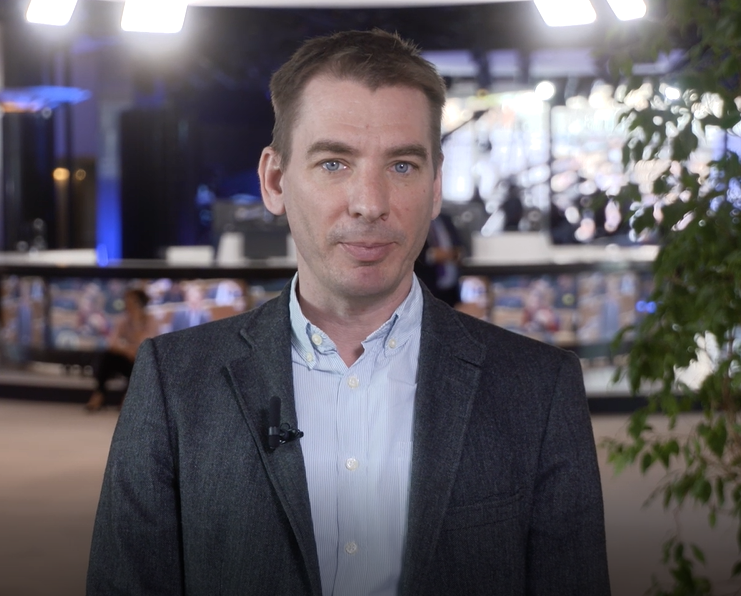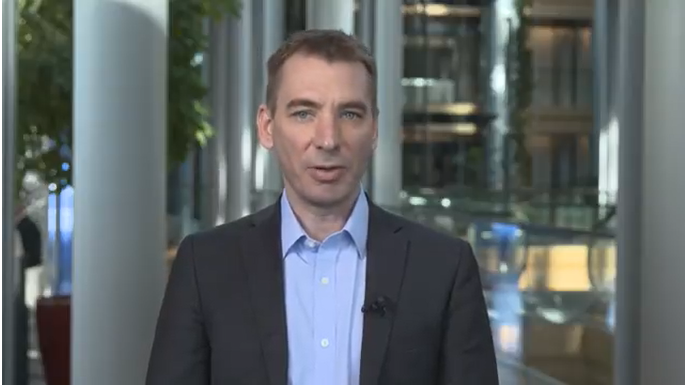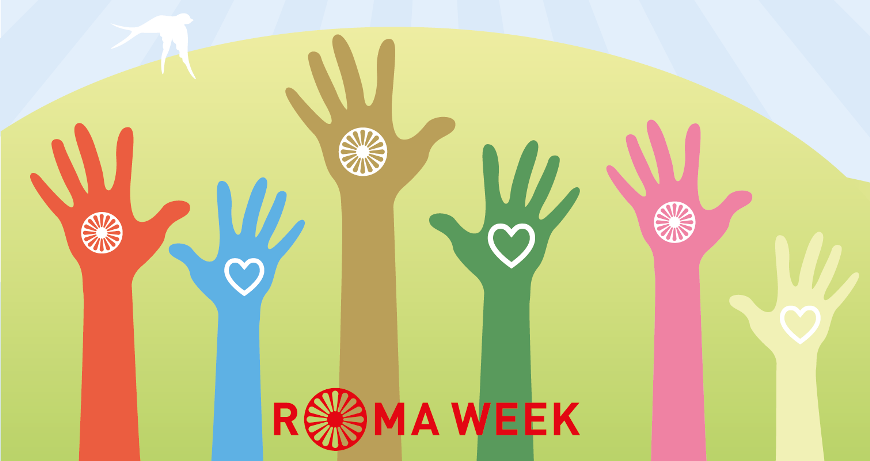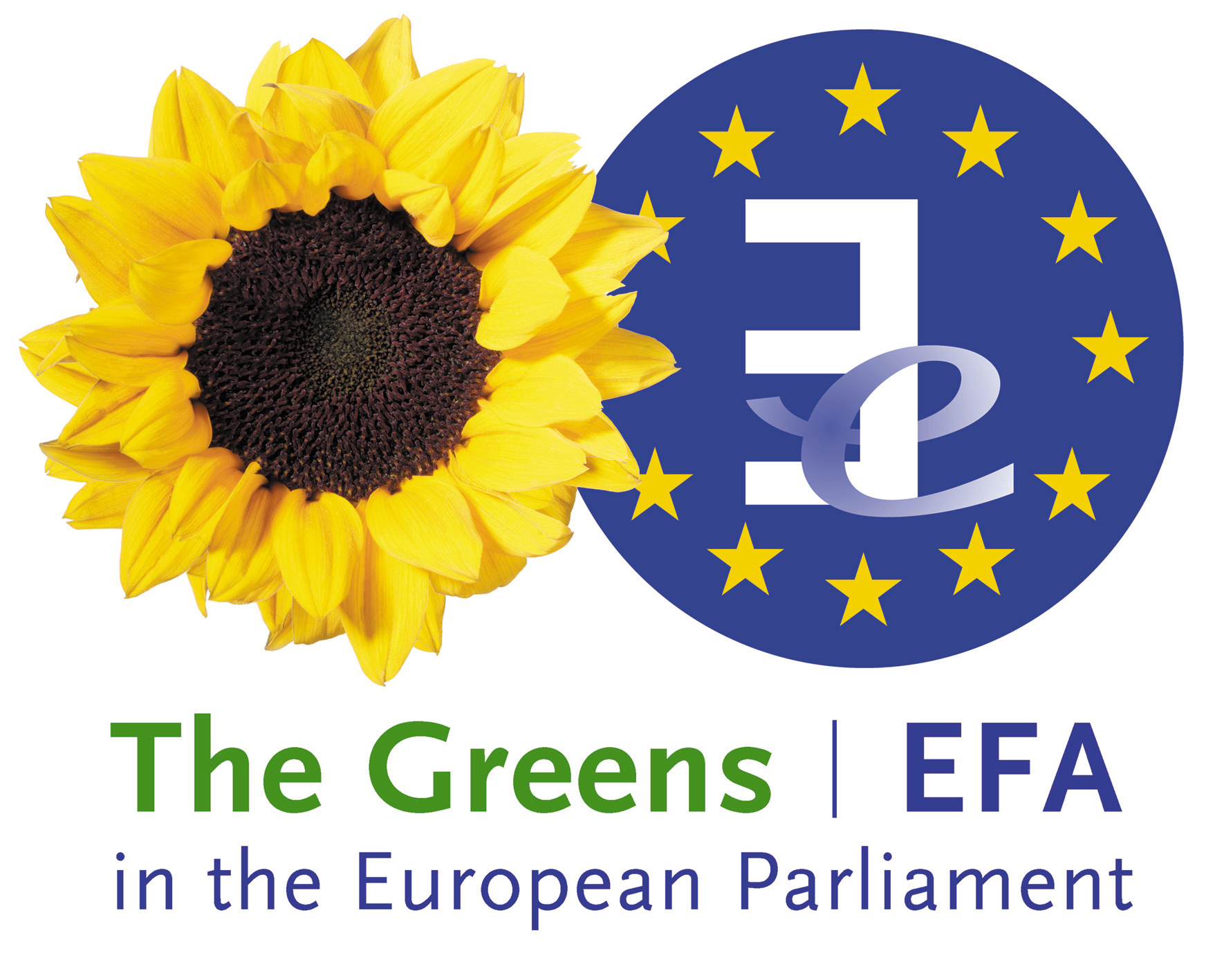Blog
Benedek Jávor Speaks about Nature’s Rights
Republic Day 2018
Republic Day commemorates two key events in Hungary that both happened on 23 October; the 1956 uprising against the Soviet Union and the creation of the Republic of Hungary in 1989.
Roma Week 2018: Video
During the week of International Roma Day, marked on 8 April, the European Parliament hosts Roma Week. This year’s Roma Week continued to build on a report that the European Parliament adopted in October 2017: “Fundamental rights aspects in Roma integration in the EU: Fighting Anti-Gypsyism.”
MEP Benedek Jávor discusses the aims of the week in this video.
In a press release, MEP Benedek Jávor stated:
“In spite of a lot of efforts, number of documents and money spent from EU sources, exclusion is still everyday reality for most of our Roma fellow-citizens throughout the EU. In some Member States we are simply not effective enough with our integration projects, in some others governments bring back shadows of the past declaring that integration is not possible. But we cannot give up our vision of a just, equal and inclusive Europe, based on fundamental rights and values. Together with Roma communities, activists and civil society we have to continue our work to make this dream come true. With the Roma Week we aim to celebrate together Roma culture as an important part of our colourful Europe, but also to point out the problems and shortcomings we have, to find better and better solutions.”
For the conference, MEP Benedek Jávor invited Thorsten Afflerbach, Head of Division for the Roma and Travellers Team, who addressed the participants of the event “From Quality Education to Decent Employment“. In the Panel “Access to Decent Employment“ he presented the recommendations on facilitating the transiting from education to employment for the Roma youth.
Additional aims for the weeks conference are outlined in the agenda.
1. Recognition of anti-Gypsyism: An opportunity for experts and activists on the issue to advocate European and national policymakers to strengthen the recognition of anti-Gypsyism as well as develop strategic and coherent responses.
2. Advocacy for specific thematic areas: Such as Roma Framework and its renewal post 2020.
3. Networking and knowledge exchange: To facilitate exchange, build capacity of activists, and inspire similar activities in Member States.
Source: https://www.coe.int/en/web/portal/roma/-/asset_publisher/GYHQssTIzR6h/content/council-of-europe-contributes-to-eu-roma-week-2018?inheritRedirect=false
Source: https://feministinitiative.eu/2018/04/04/the-third-eu-roma-week-will-take-place-in-brussels-starting-on-8th-of-april-international-roma-day/
“A decision as important for Europe as it is for Hungary” – Benedek Jávor on the Sargentini Report
Interview On 12 September the European Parliament voted in favour of starting procedures against the Hungarian government for breaching European values. The report on the state of the rule of law, democracy and fundamental rights in Hungary was prepared by Greens/EFA rapporteur Judith Sargentini in the Committee on Civil Liberties, Justice and Home Affairs (LIBE). We asked Hungarian MEP Benedek Jávor (Greens/ EFA) how he evaluates the outcomes of the vote. The interview was conducted by Zsófia Deák from the Prague Office of the Heinrich Böll Foundation.
20. September 2018 by Benedek Jávor, Zsófia Deák

Many MEPs have turned away from Viktor Orbán even within his own political group, the EPP, since May 2017, when the state of democracy in Hungary was discussed at the European Parliament and when the LIBE committee was mandated to draw up the report. How do you evaluate the results of Wednesday’s vote on the Sargentini Report?
Since May 2017 the Hungarian Government’s actions have proved again and again what their attitude is towards democratic institutions, the media, and the rule of law. The situation has been deteriorating since that time, and EPP members could not pretend they did not know what was going on in Budapest. This is a very important, positive outcome, as the overwhelming majority of the European Parliament agrees there are serious problems in Hungary. It became clear that Orbán politically is closer to the far-right parties than to mainstream Christian Democrats. With this vote he has lost the battle to dominate the EPP: European conservatives are not ready for an ‘Orbanification’ of their political group. Now the Hungarian prime minister will most probably turn to his plan B, which is to bring eurosceptic far-right forces together into a political group at the EP. If so, he will soon have to recognize, however, what the difference is between enjoying the protection of the biggest political group in the EP versus the protection of a marginalized, extremist minority alliance.
What were your impressions after the debate on Tuesday that preceded the vote? How do you evaluate Orbán’s speech and the reactions he received during the debate?
Orbán had the chance to choose a more compromise-seeking position with the EPP and with the EP in general, but in the end he decided to be more confrontational. He was not even trying to convince the EPP and the Plenary to support him, his speech and rhetoric was addressed to his own domestic supporters. It was also a crucial point that Manfred Weber, the chair of the EPP group, decided to speak up in this conflict. It is hard to say whether the EPP had ever proposed a compromise or whether it was already too late by now, but the result is clear: Orbán is in the minority. This became visible at the plenary, but the decision had been made earlier. By the time the speakers entered the room, the battle was already over. Both Orbán and Weber knew there would be no compromise, and they spoke according to that knowledge.
How were the final results communicated in Hungary by the Government and the opposition?
The Government presented it as an attack on the Hungarian nation. They did not even try to defend their position, they wanted to present themselves as victims of an unfair attack organised by a putative internationalist, pro-immigration conspiracy revenging itself against Hungary for allegedly having blocked their efforts to change the population of the continent. George Soros was mentioned there as well, of course. However, I felt there was a bit of confusion, a lack of strength, and some self-repetition in the governmental communication.
Most of the opposition parties welcomed the decision and evaluated it as a great success, underlining that the report criticizes the Government and not the country or the people, and emphasizing that actually the EP defends the fundamental rights of Hungarian citizens against their own Government. In fact, the vote is the first defeat for Orbán for a long time, and this generates a new political momentum in the country. There were calls for the resignation of the whole Government, and rallies were launched for the weekend. However, there were actually some opposition MEPs who voted against the report or who did not cast their votes, mostly from the far-right Jobbik party but most disappointingly also from LMP, one of the Hungarian green parties which has drifted to the right and closer to the Government in the last few years.
How was the vote received by the state media and independent outlets?
Government propaganda- quite predictably- tried to present the whole report as an attack against the Hungarian nation, and they mostly claimed it was revenge because for Hungary’s anti-immigration policies. The Government-controlled news outlets were keen on presenting people from all over Europe who had “stood up for Hungary”. In this alternative reality, the governmental media reported that Orbán had received an immense outpouring of support from the European public for his fight against European elites and institutions. The evidence provided of that was a couple of sporadic Facebook comments from Orbán’s own website, which were then published in each and every governmental media outlet. The very few remaining independent outlets followed the whole debate and the votes very closely, and there were quite high numbers of analyses published. After the vote they followed the Government’s reactions and made it very clear when the Government propaganda was full of false statements. They also analysed in detail the possible political consequences of the vote, which might have more of an effect than the practical legal procedure will, for the moment.
What do you expect – how will the EP decision to pass the Sargentini Report influence the politics of Orbán in the near future, taking into consideration the approaching EP elections?
Earlier on Orbán’s main goal was to push the whole EPP into a more far-right position. He did not succeed. His former allies within the EPP (such as the CDU or the Austrian ÖVP, for example) decided to vote in favour of the Sargentini Report. Therefore it is clear now that his only allies are the eurosceptic, mostly openly racist, far-right parties. That is the only direction he can move in, and this will hugely influence his strategy for the EP elections. However, it does not seem likely that any new kind of far right EP group would ever gain as much influence as the EPP has now.
What does this vote mean for Hungary and the EU in the long run?
This vote was only one step in a longer process and now the discussion will proceed in the Council. However, it will not be much easier for Orbán to convince the other governments there, either. He has very few allies. The end of the process, in theory, could lead to certain sanctions against Hungary, but which sanctions would be possible is also not yet clarified. On the other hand, in the next multiannual financial framework (MFF) the Commission has proposed the option of freezing payments of EU funds in cases involving serious corruption issues (under the so-called rule of law procedure). So there might be a possibility to practically impose sanctions on Hungary even without a Council decision on the Article 7 procedure.
This decision was at least as important for Europe as it was for Hungary, though. Now it has been proved that the EU is able and ready to stand up for its fundamental rights and values, and not only when it comes to breaches of competition law, the single market rules, or state budget deficit targets. It was an important test.
Alternatives to Nuclear Power – Workshop
On the 6th of June, the Greens-EFA group in collaboration with Greenpeace Energy hosted a workshop to discuss a recent study by Energy Brainpool titled Controllable Renewable Energies: An Alternative to Nuclear Power, Cost Comparisons for Poland, Slovakia, Czech Republic and Hungary. During the workshop participants had the opportunity to follow a diverse discussion including several different opinions on the topic, as the Commission and Greenpeace Energy reflected on the findings of the study.
The study is available here: 2018-04_25_ENERGY BRAINPOOL_Visegrad Study_2018 April
The presentation of Energy Brainpool is available here: 2018-06-06_GPE_Study-Presentaion-V4-Brussels_FaH
The presentation of Greenpeace Energy is available here: 180606_EP_Studie_Visesgrad-Atom_Brüssel
Energy efficiency – Europe is taking a step in the right direction
The Greens/EFA group has welcomed the increase in energy efficiency targets in the EU, but warned that they still fall short of delivering on the Paris climate agreement.
After particularly difficult negotiations, an agreement was reached last night on the revision of the Energy Efficiency Directive between the European Parliament, the European Commission and the Council.
Benedek Jávor, energy efficiency spokesperson for the Greens/EFA group, comments:
“We’ve worked hard to push for the highest overall ambition possible. Despite the lack of ambition of national governments, we have managed to deliver a headline target of 32.5 % and annual savings of 0.8% for consumers. We have made sure that over the next decade there will be greater savings, delivered at a faster pace. This will deliver tangible benefits for Europeans, not least in tackling the problem of energy poverty. It also opens up an opportunity to create thousands of jobs in the green economy, opportunities that are desperately needed in many parts of Europe.
“Nonetheless, the measures are not enough for the EU to fulfil its commitments under the Paris Agreement. They will need to be strengthened in time if we are to meet our climate obligations and deliver the full health and financial benefits of energy efficiency to the people of Europe.”
Letter to Commissioner Vella asking for a proposal for an Ivory Ban
Commissioner Vella
Environment, Maritime Affairs and Fisheries
European Commission
Berlaymont
Rue de la Loi 200
1000 – Brussels
Brussels, 2 May 2018
On a Proposal for an Ivory Ban
Dear Commissioner Vella,
We are turning to you to draw your attention to the growing concern related to ivory trading. Since the implementation in EU law of CITES in 2015, the trade in ivory has somewhat diminished. However, elephant and rhino species continue to be in serious danger, as the level of poaching remains high. This situation is exacerbated by the fact that international criminal organisations have found in wildlife trafficking a lucrative business, as the risk of getting caught and the consequent penalties are relatively low and the economical return is significantly higher. The shared feeling is that, despite the actions taken in the past, this still represents a huge concern and that only a tough measure would help eradicating this practice.
Given these considerations, we feel that the time is ripe for the next step from the Commission: a proposal on total ban on ivory import/trade. The Parliament has been advocating for such a ban for a long time, most recently in the resolution on „EU action plan against wildlife trafficking” voted with a large majority on 24 November 2016. Moreover, the issue was raised during the last informal ENVI council on the 5th March 2018 and the report on the outcome of the discussions seems to suggest an a priori openness from the Council also.
The EU should pave the way for other countries to follow as it did so many times before and we count on your leadership on this issue.
We are looking forward to working with you on this matter and to promptly ensure the welfare and conservation of the affected species.
Yours sincerely,
Benedek Jávor and Catherine Bearder
MEPs for Wildlife
Co-signatures:
ADINOLFI Isabella (EFDD)
AFFRONTE Marco (Greens/EFA)
ALBIOL GUZMAN Marina (GUE/NGL)
ANDERSON Martina (GUE/NGL)
ANDERSSON Max (Greens/EFA)
ARIMONT Pascal (EPP)
AUSTREVICIUS Petras (ALDE)
BACH Georges (EPP)
BILBAO BARANDICA Izaskun (ALDE)
BOYLAN Lynn (GUE/NGL)
BRANNEN Paul (S&D)
CARTHY Matt (GUE/NGL)
CASA David (EPP)
CASTALDO Fabio Massimo (EFDD)
CHRYSOGONOS Kostas (GUE/NGL)
COUSO PERMUY Javier (GUE/NGL)
CRAMER Michael (Greens/EFA)
CSÁKY Pál (EPP)
DATI Rachida (EPP)
DE MONTE Isabella (S&D)
DURAND Pascal (Greens/EFA)
FLACK John (ECR)
EICKHOUT Bas (Greens/EFA)
ECK Stefan (GUE/NGL)
EPITIDEIOS Georgios (NI)
EVANS Jill (Greens/EFA)
EVI Eleonora (EFDD)
FARIA Jose Inacio (EPP)
FLANAGAN Luke Ming (GUE/NGL)
FOSTER Jacqueline (ECR)
FRUNZULICA Doru (S&D)
GERBRANDY Gerben-Jan (ALDE)
GERINGER DE OEDENBERG Lidia Joanna (S&D)
GILL CBE Neena (S&D)
GODDYN Sylvie (ENF)
GRIESBECK Nathalie (ALDE)
GRIFFIN Theresa (S&D)
HÄUSLING Martin (Greens/EFA)
HAZEKAMP Anja (GUE/NGL)
HOWARTH John (S&D)
JAAKONSAARI Liisa (S&D)
JAMES Diane (NI)
JOLY Gro Eva (Greens/EFA)
KADENBACH Karin (S&D)
KONEČNÁ Kateřina (GUE/NGL)
KYENGE Cécile Kashetu (S&D)
KYLLÖNEN Merja (GUE/NGL)
KYRKOS Miltiadis (S&D)
LALONDE Patricia (ALDE)
LEINEN Jo (S&D)
MARCELLESI Florent (Greens/EFA)
MARTIN David (S&D)
MAYER Alex (S&D)
MCCLARKIN Emma (ECR)
MCINTYRE Anthea (ECR)
MICHEL Louis (ALDE)
MIRANDA Ana (Greens/EFA)
MITROFANOVS Miroslavs (Greens/EFA)
MIZZI Marlene (S&D)
MONTEL Sophie (EFDD)
NAGY József (EPP)
NI RIADA Liadh (GUE/NGL)
OMARJEE Younous (GUE/NGL)
POC Pavel (S&D)
POSPÍŠIL Jiří (EPP)
POST Soraya (S&D)
PIETIKÄINEN Sirpa (EPP)
PUNSET Carolina (ALDE)
RADEV Emil (EPP)
REIMON Michel (Greens/EFA)
RIES Frédérique (ALDE)
ROCHEFORT Robert (ALDE)
RODRIGUES Liliana (S&D)
RODRÍGUEZ-PIÑERO Inmaculada (S&D)
ROPÉ Bronis (Greens/EFA)
SOLTES Igor (Greens/EFA)
SZANYI Tibor (S&D)
TAMBURRANO Dario (EFDD)
TAYLOR Keith (Greens/EFA)
TRÜPEL Helga (Greens/EFA)
UJHELYI István (S&D)
URTASUN Ernest (Greens/EFA)
VAIDERE Inese (EPP)
VAJGL Ivo (ALDE)
VAN BREMPT Kathleen (S&D)
VANA Monika (Greens/EFA)
VAUTMANS Hilde (ALDE)
WARD Julie (S&D)
WISNIEWSKA Jadwiga (ECR)
ZOANĂ Maria Gabriela (S&D)
Photo credits to: http://www.shahrogersphotography.com/detail/1597.html
Protection of investigative journalists in Europe
The European Parliament will hold a debate this afternoon on the protection of investigative journalists in Europe, following the murder of Slovak journalist Ján Kuciak and his partner Martina Kušnírová.
Please find below a quote from Greens/EFA MEP Benedek Jávor, who recently visited Slovakia as part of a European Parliament fact finding mission. He will speak in the debate this afternoon.
“The Slovak government needs to make sure there is a swift and impartial investigation of the murder of Ján Kuciak and Martina Kušnírová. Their deaths raise serious questions about freedom of the press in Slovakia and demonstrate the alarming depths of corruption in the country. Having recently visited Slovakia, I witnessed the strength of the student and civil society movement against corruption and for democratic values and rule of law. The EU needs to stand up for these values too, by scaling up its efforts to protect journalists and whistle-blowers.
“There is evidence of misuse of EU funds, with concerns that agriculture subsidies are being siphoned off to fund criminal activities. The European Anti Fraud Office must investigate to make sure any abuse is brought to an end.”
Greens/EFA respond to the news of the death of a Slovakian journalist
Greens/EFA transparency spokesperson Benedek Javor comments:
“We are deeply shocked to learn of the death of Ján Kuciak and his partner Martina Kušnírová. We expect to see a thorough and independent investigation so that the perpetrators can be brought to justice.
“This horrifying incident comes only a few months on from the murder of the Maltese journalist Daphne Caruana Galizia. Investigative journalism is one of the cornerstones of our democratic society and we have to make sure that journalists can speak truth to power without fear of intimidation or violence. The European Union must urgently look at how it can better protect journalists.”
The Greens/EFA group has asked for the President of the European Parliament, Antonio Tajani, to respond to the incident during his opening remarks of the upcoming plenary session in Brussels on Wednesday.








